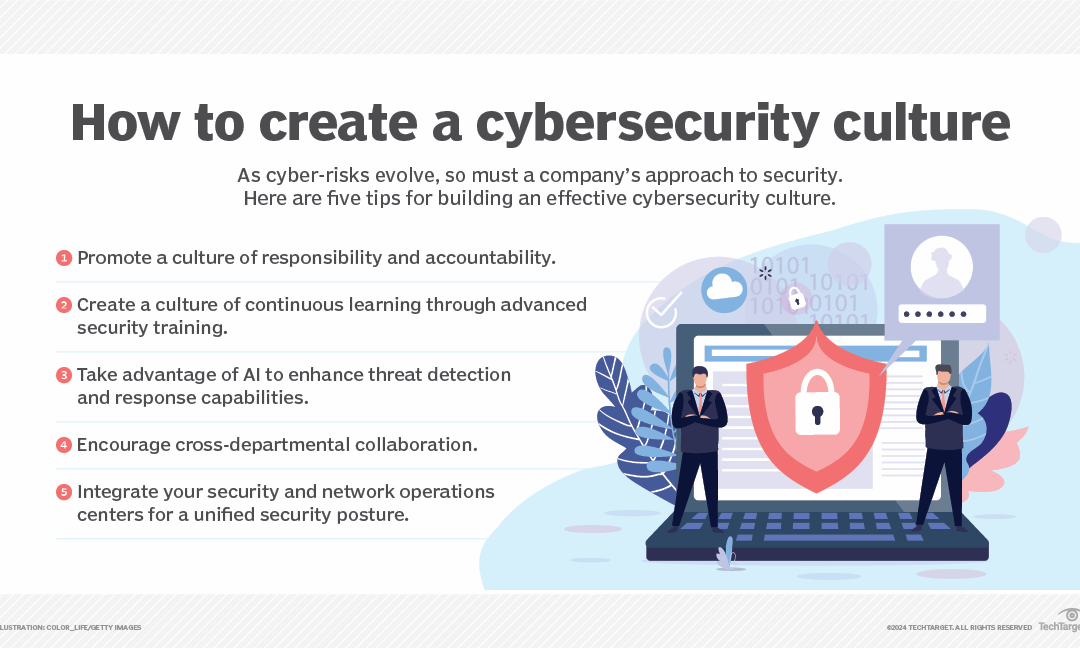Understand the Holiday Season Cyber Threats The holiday season is a time for joy, celebration, and generosity. However, this...


Understand the Holiday Season Cyber Threats The holiday season is a time for joy, celebration, and generosity. However, this...

Cybercriminals steal credit card? Cybercriminals have various methods at their disposal to hack and exploit credit card...

This in-depth cybersecurity planning guide provides information and advice to help organizations develop a successful strategy...

While home health agencies face distinct health IT challenges, collaboration and innovation are crucial for overcoming these...

Understanding Managed IT Services What Are Managed IT Services? Managed IT Services For business are the comprehensive...
Managed IT Services have emerged as a cornerstone for companies aiming to optimize their IT infrastructure while focusing on core business strategies. Managed IT Services: pros and cons.
This approach involves outsourcing IT tasks to specialized providers, offering businesses a blend of expert support, enhanced efficiency, and strategic flexibility. However, like any significant business decision, adopting Managed IT Services comes with its own set of Managed IT Services: pros and cons.
1. Cost Efficiency: One of the most compelling benefits is cost savings. Managed IT Services eliminate the need for significant upfront investment in IT infrastructure and reduce the expenses associated with maintaining an in-house IT team. Companies enjoy a predictable monthly fee, transforming capex into opex and freeing up capital for other strategic investments.
2. Expertise and Experience: Managed Service Providers (MSPs) bring a wealth of knowledge and specialized expertise to the table. They stay on the cutting edge of technology trends, regulations, and cybersecurity threats, ensuring your IT infrastructure is robust, compliant, and secure. This level of expertise is particularly beneficial for small to medium-sized businesses that may not have the resources to maintain such a breadth of knowledge in-house.
3. Proactive Approach to Maintenance: MSPs don’t just react to issues; they proactively monitor and manage your IT environment to prevent problems before they arise. This proactive maintenance can lead to higher uptime, fewer disruptions, and more stable IT systems, ultimately supporting smoother business operations.
4. Scalability and Flexibility: As businesses grow or face seasonal fluctuations, their IT needs change. Managed IT Services offer the flexibility to scale up or down quickly, without the need to invest in additional hardware or lay off IT staff during slower periods. This scalability ensures that your IT capabilities always align with your current business needs.
5. Enhanced Security and Compliance: With cyber threats evolving at an unprecedented pace, security is a top concern for businesses. MSPs specialize in implementing comprehensive security measures, conducting regular audits, and ensuring compliance with industry regulations, providing peace of mind in a landscape where threats are ever-present.
1. Loss of Control: One common concern is the perceived loss of control over IT operations. For example, Businesses accustomed to having an in-house team may find it challenging to entrust external providers with their critical IT functions. Clear communication, well-defined SLAs (Service Level Agreements), and regular reporting can mitigate these concerns, ensuring transparency and alignment with business goals.
2. Dependency on Service Providers: Relying on an MSP means your IT operations are in their hands. If the provider experiences downtime, technical issues, or cybersecurity breaches, your business could be at risk. It’s crucial to vet potential MSPs thoroughly, assessing their reliability, track record, and the robustness of their own IT and security infrastructure.
3. Data Security and Privacy Concerns: Outsourcing IT functions often involves handing over sensitive data to the MSP. While reputable providers implement stringent security protocols, businesses must conduct due diligence to ensure their data is protected, and compliance requirements are met, particularly in highly regulated industries.
4. Integration and Compatibility Issues: Integrating existing IT systems with the MSP’s infrastructure can sometimes pose challenges, especially if the business uses legacy systems or uncommon software. Compatibility issues can lead to additional costs or require workarounds, highlighting the importance of thorough planning and assessment before transitioning to a managed service model.
5. Finding the Right Partner: Perhaps the most significant challenge is selecting the right MSP. The ideal partner should not only offer technical expertise but also understand your industry, business model, and long-term goals. A mismatched partnership can lead to frustration, unmet expectations, and suboptimal IT performance.
Despite these challenges, the advantages of Managed IT Services often outweigh the potential drawbacks for many businesses. The key to a successful partnership lies in choosing the right MSP, one that aligns with your business values, understands your industry’s nuances, and can scale with your growth. Regular communication, transparent SLAs, and a collaborative approach can turn your MSP into a strategic ally, helping you navigate the complexities of the digital world while you focus on driving your business forward.
| Managed IT Services | |
| PROS | CONS |
| Cost Efficiency | Loss of Control |
| Expertise and Experience | Dependency on Service Providers |
| Proactive Approach to Maintenance | Data Security and Privacy Concerns |
| Scalability and Flexibility | Integration and Compatibility Issues |
| Enhanced Security and Compliance | Finding the Right Partner |
Western I.T. adeptly addresses the challenges associated with Managed IT Services through a combination of strategic approaches, technological expertise, and customer-centric practices:
Western I.T. ensures clients maintain a sense of control over their IT operations by fostering open communication and transparency. Not only provides detailed reporting and regular updates on IT activities but also, allows businesses to stay informed and involved in decision-making processes. This approach helps mitigate concerns about losing control over IT functions.
To reduce dependency on their services, Western I.T. designs resilient and self-sufficient IT systems that require minimal intervention. Also, we offer training and support to in-house IT staff, ensuring that the business can maintain basic operations independently. For more complex issues, Western I.T. guarantees swift and effective support, minimizing potential downtime or disruptions.
Western I.T. places a strong emphasis on data security and compliance with regulations. Additionally, employ state-of-the-art security measures, conduct regular security audits, and keep abreast of the latest in cybersecurity trends to protect clients’ data from threats. Their adherence to industry standards and best practices ensures that client data remains secure and private.
Understanding the importance of compatibility and integration, Western I.T. conducts thorough assessments of existing IT infrastructures before implementing new solutions. They ensure that new systems and services integrate smoothly with legacy systems, avoiding disruptions and ensuring continuity of operations.
Western I.T. stands out as an ideal partner for businesses looking to navigate the complexities of Managed IT Services. They emphasize understanding each client’s unique needs, industry-specific challenges, and long-term goals. Furthermore, Their commitment to customization, coupled with their wide range of services, makes them a versatile and reliable IT partner for businesses of all sizes.
Western I.T.’s services are designed to be scalable and flexible, accommodating businesses’ changing needs. Additionally, Whether a company is expanding, contracting, or requiring specialized services for a specific project, Western I.T. adjusts its offerings accordingly, ensuring businesses have access to the right level of IT support at all times.
Worried about being a target for phishing attacks? Protect your company today!
Understand the Holiday Season Cyber Threats The holiday season is a time for joy, celebration, and generosity....
Cybercriminals steal credit card? Cybercriminals have various methods at their disposal to hack and exploit credit...